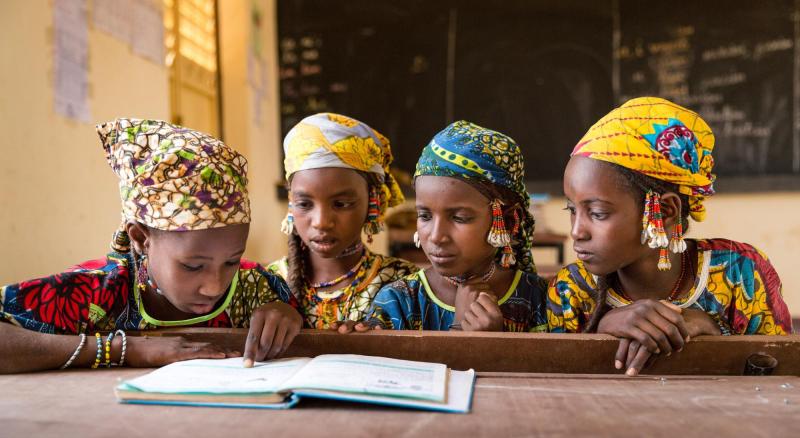Gender in agricultural and pastoral livelihoods in SPARC countries in sub-Saharan Africa and the Middle East: A review
This scoping paper presents the results of a review of gender-related findings in research published over the past five years on agricultural and pastoral livelihoods in SPARC focus countries.
This scoping paper presents the results of a review of gender-related findings in research published over the past five years on agricultural and pastoral livelihoods in SPARC focus countries: Burkina Faso, Chad, Eritrea, Ethiopia, Kenya, Mali, Mauritania, Niger, Nigeria, Somalia, South Sudan, Sudan, Syria, Uganda and Yemen.
The review of 170 papers aims to characterise the landscape of research, taking into account evidence of geographical variation; the ways in which gender is approached through studies; and the thematic range of knowledge relating to gender and agricultural and pastoral livelihoods. From this, it is possible to identify gaps and knowledge to which SPARC can contribute. The Scopus database was used to identify academic research as it is one of the world’s largest abstract and citation databases of peer-reviewed literature.
The results are indicative as sampling from only one academic database cannot be comprehensive, and the database prioritises literature published in the English language. The findings show that:
- The number of papers published covering gender in agricultural and pastoral livelihoods in SPARC countries has increased over the last five years, but there is an uneven geographical distribution of research. The largest number of papers focus on (in order of magnitude) Kenya, Ethiopia, Nigeria and Uganda; significantly fewer focus on Burkina Faso, Niger, Mali, Eritrea, Somalia, South Sudan, Sudan and Syria; and no papers have been published during the five-year period that focus on Chad, Mauritania and Yemen;
- There is an almost even split between two approaches: slightly less than half of the papers present approaches that are modelling-based, where gender is one of many variables to be correlated with, or to determine, an outcome. These modelling studies typically represent a snapshot in time. Slightly more than half of the papers have the expressed aim to look at gender differences, whether through the gender of an individual or the gender of a household head. There is some evidence of tracing change over time in these studies;
- Themes of interest were identified from the literature. Groups of papers examine gender differences in assets, health, perceptions of environmental degradation, agricultural perceptions and outcomes, and climate change perceptions, vulnerability and adaptation. A number of papers also explore women’s empowerment, including intra-household decision-making. Intersectional approaches were employed both through modelling studies and through more in-depth qualitative studies that are able to trace changes in identity over time, and the implications of these. The household and household headship have remained common entry points and units of analysis.
Based on these, the review recommends key priorities to:
- Address geographical gaps in gender research: Given the highly uneven distribution of research on gender in agricultural and pastoral livelihoods, a key priority for SPARC will be to contribute to evidence and knowledge on those countries that are underrepresented;
- Expand the evidence base of intersectional approaches: whilst there has been growth in intersectional approaches to gender, these are still not as common as more traditional studies that consider gender irrespective of other social identifiers. Similarly there are few studies that track change over time, which provide opportunities to see how age can intersect with gender and other social identifiers to mediate or amplify inclusion or exclusion. Addressing these gaps will enable more nuanced insights into the causes and dimensions of inequality;
- Explore other aspects of social inequality: there is a need for explicit research on other aspects of social exclusion and inequality. SPARC already has a commitment to youth, and recently published a report reviewing youth prospects for decent work in east and West Africa. Knowledge gaps remain around (dis)ability and conflict;
- Support more innovative methodological studies: There is significant scope for new methodological approaches that will make visible the nuanced nature of intersectionality in agricultural and pastoral livelihoods in SPARC countries. Of particular importance is the need for action research that empowers women, girls and other marginalised groups to play a more central role in the definition and collection of data that puts their perspectives centre stage;
- Investigate implications of policy and practice on gender equality (and social inclusion): Although explicit policy analysis studies were excluded from the sample, few studies look at the interaction of policy and practice, and the impact that policy and practice have on gender roles/relations and equality. Instead, the majority of the focus is on how gender-blind policies and programmes provide differential access to opportunities and can reinforce inequalities. Whilst important, assessing the implications of existing interventions on gender equality is similarly important and is another activity that SPARC can undertake.
This study has also been published in Frontiers in Sustainable Food Systems.
.
